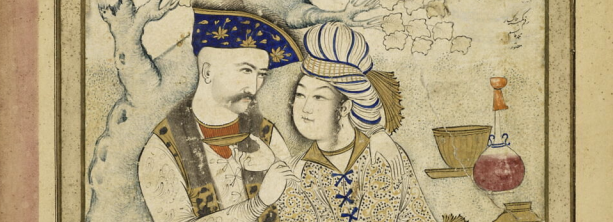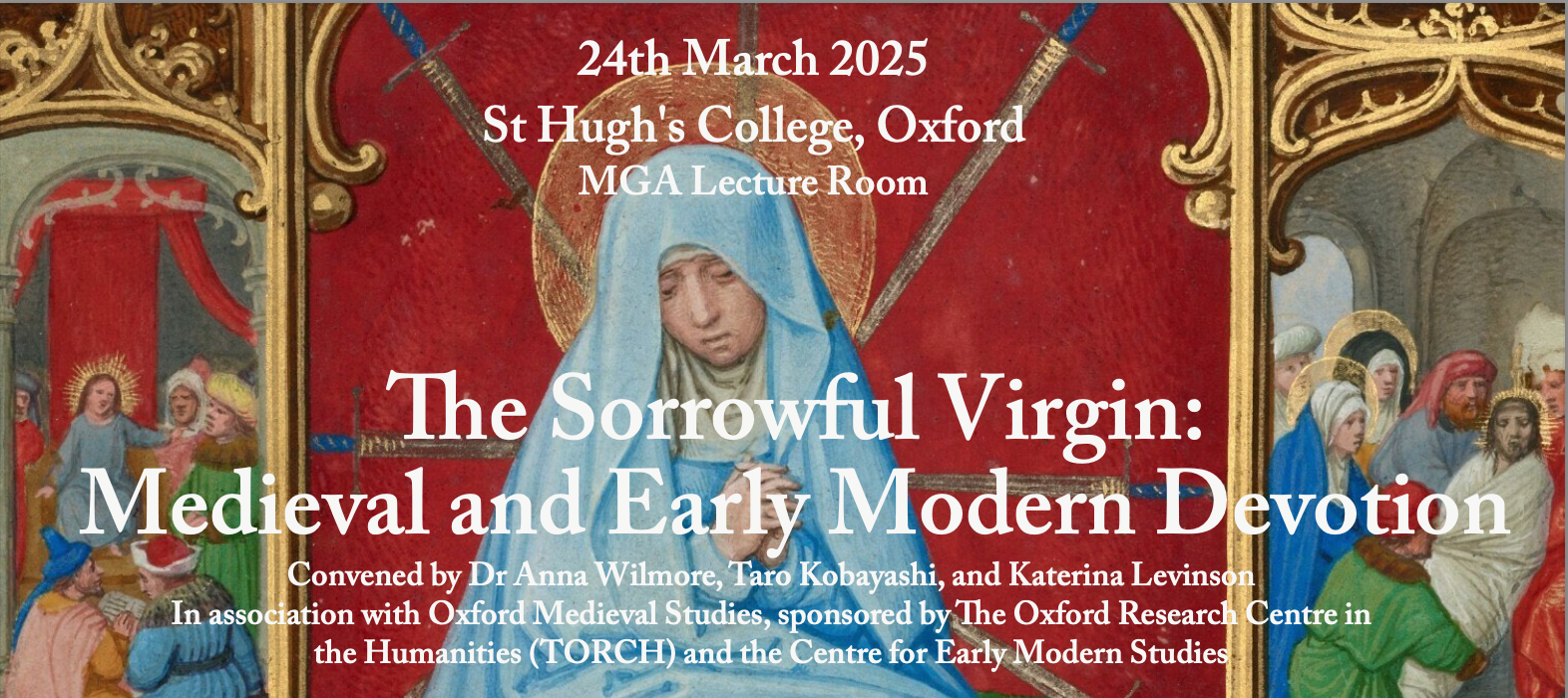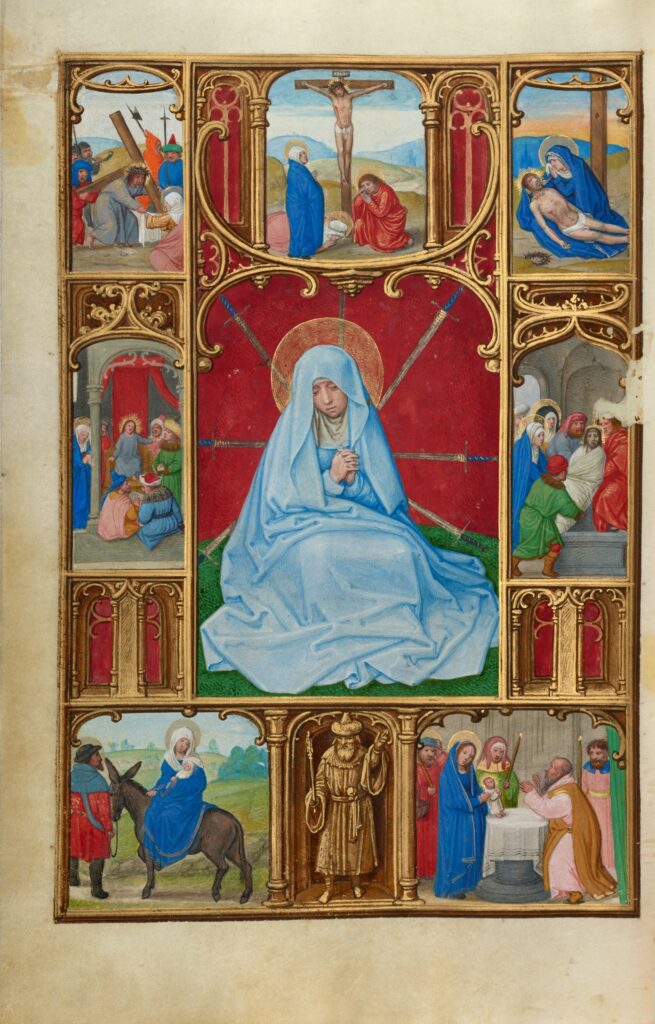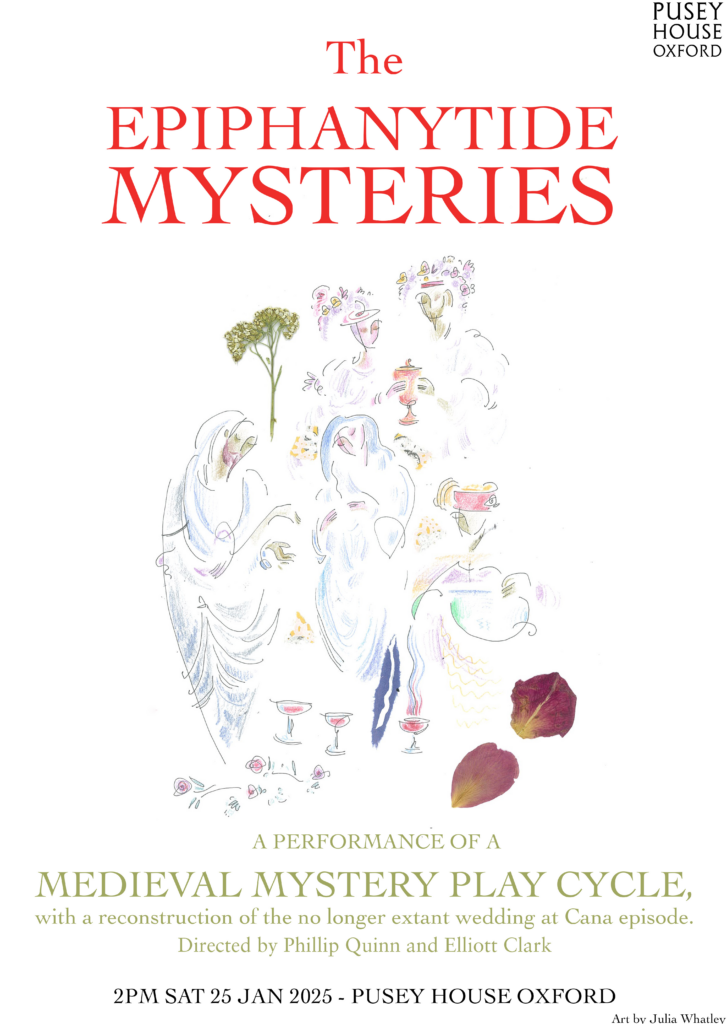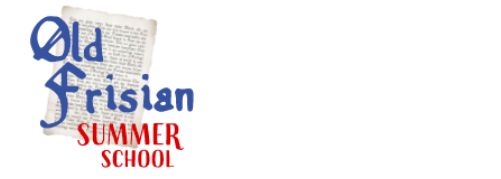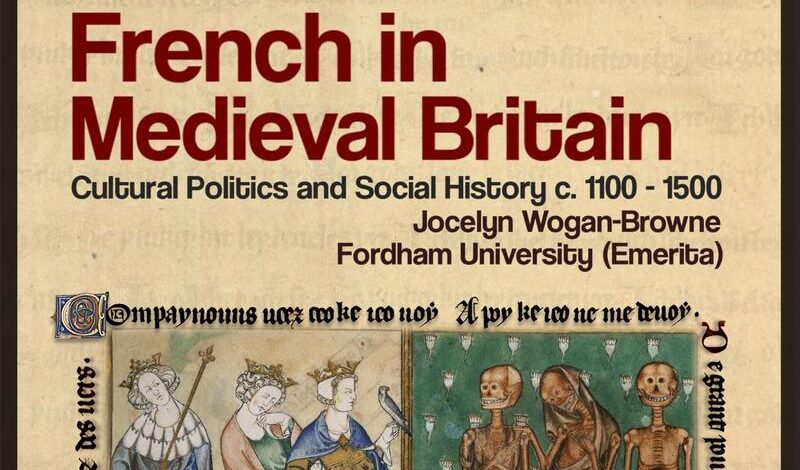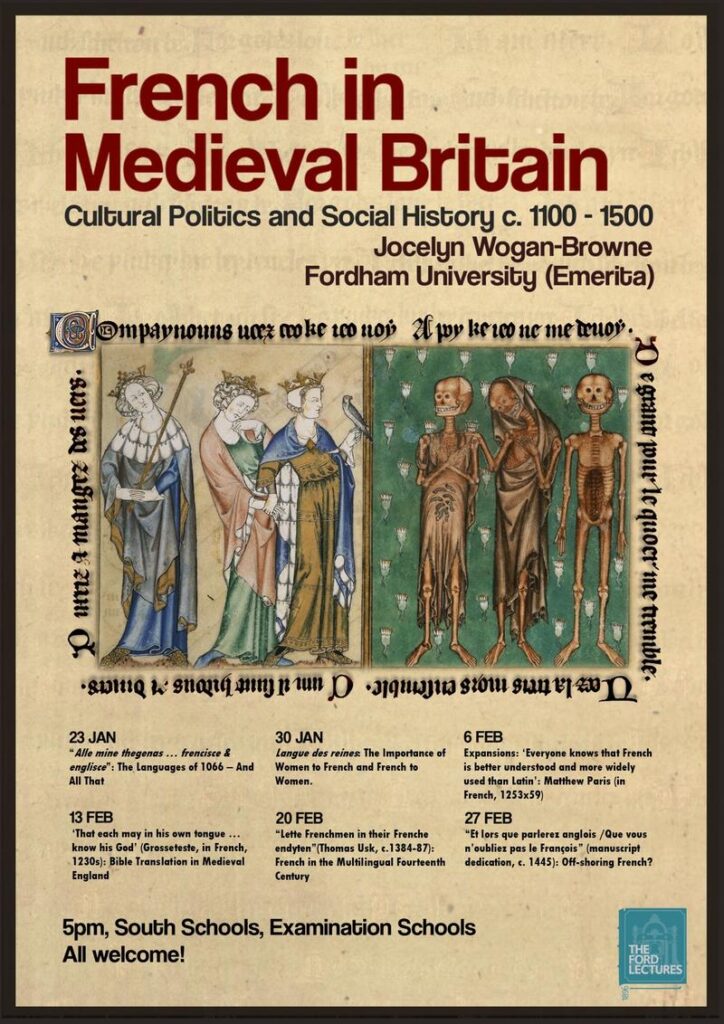Welcome to Week 2. As always, we have an impressive set of medieval events for you to enjoy this week. A brief outline is provided below, but the full booklet can be found here. There is still time to sign up for the Medieval Mystery Plays on 26 April – just contact Antonia Anstatt and Sarah Ware.
Of particular note: the Centre for Early Medieval Britain and Ireland are running a trip to visit the British Museum’s Silk Road exhibition (Friday 21st February, 8pm). You can find a link to sign up for the trip here.
Events
Monday
- French Palaeography Manuscript Reading Group – 10.30am in the Weston Library. Those interested should email Laure Miolo.
- Seminar in Palaeography and Manuscript studies – Weston Library, Horton Room, 2.15-3.45pm. Julia King will be speaking on ‘Manuscripts In and Out of Syon Abbey’.
- Medieval Archaeology Seminar – Institute of Archaeology Lecture Room, 3pm. John Dinges will be speaking on ‘Moulding Emotions: Later Medieval Badges in England and Wales’.
- Medieval History Seminar – 5pm at All Souls College. Nora Berend (Cambridge) will be speaking on ‘Stephen I of Hungary: Medieval Myths and Modern Nationalism’.
- Old Norse Reading Group – 5.30, English Faculty Graduate Common Room. This term we will be reading Hrafnkels saga.
Tuesday
- The Latin Palaeography Reading Group meets 2-3.30pm. Please email Laure Miolo for more information.
- Medieval Church and Culture – 5.15pm (coffee from 5pm) in the Wellbeloved Room, Harris Machester College. Bee Jones will be speaking on ‘Bernard’s Barbarians: Bernard of Clairvaux, Malachy of Armagh, and Discourses of Irish Barbarism’.
- Early modern diplomacy, 1400-1800 seminar is CANCELLED.
Wednesday
- Medieval German Graduate Seminar on ‘Geistliche Spiele’ – 11.15am in the Old Library of St Edmund Hall. Contact Henrike Lähnemann if you would like to be added to the teams group
- History and Materiality of the Book Seminar – 2pm in the Weston Library, Horton room. Andrew Honey will be speaking on ‘Writing supports (parchment and paper) and Bindings’.
- Medieval Latin Document Reading Group – 4pm, online.
- Late Antique and Byzantine Seminar – 5pm in the Ioannou Centre. Phil Booth (Oxford) will be speaking on ‘John of Ephesus: Historian on the Edge’.
- Slade Lecture Series – 5pm at St John’s College. ‘Gaps in Archives’. Book a place.
- Medieval English Research Seminar – 5.15pm, Lecture Theatre 2, St. Cross Building. Tamara Atkin (Oxford) will be speaking on ‘On Fragments: The Material and Textual Value of Manuscript and Print Binding Waste’.
Thursday
- Medieval Hebrew Reading Group – 10am in the Clarendon Institute.
- EMBI Lunch and Launch – 12.30pm–2pm: Massey Room, Balliol College. Sign up here.
- Greek and Latin Reading Group – 2.30pm in the Stapledon Room, Exeter College. The theme this week is Lucian’s A True History.
- Middle English Reading Group – 4pm, Beckington Room, Lincoln College. The text this term will be the ‘double sorwe’ of Troilus and Criseyde.
- Ford Lecture – 5pm in the Examination Schools. Jocelyn Wogan-Browne will be giving the second of her lectures: ‘Langue des reines: The Importance of Women to French and French to Women.’
- The Khalili Research Centre For the Art and Material Culture of the Middle East: Research Seminar – 5.15pm in the in the Ioannou Centre/Faculty of Classics’ Lecture Theatre. Beatrice Spampinato (Kunsthistorisches Institut, Florence) will be speaking on ‘Anatolian Language Carved in Stone: Reading the Qalls of Ani across Christian and Islamic Visual Cultures’.
- Celtic Seminary – 5.15pm online. Abdul-Azim Ahmed (Cardiff) will be speaking on ‘The story of Islam in Wales: Findings from the Islam in Wales History Project’.
Friday
- Medievalists Coffee Morning – 10.30am at the Weston Library. All welcome, coffee and insight into special collections provided.
- Magna Carta 1225: New Discoveries & Repercussions – 1pm, Blackwell Hall, Weston Library. Nicholas Vincent will be speaking on ‘Magna Carta: New Discoveries’.
- Exploring Medieval Oxford through Lincoln & Magdalen Archives – 2pm in the EPA Centre (Museum Road) Seminar room 1. Please contact Laure Miolo for more information.
Opportunities
- Sign up link for Dr Daisy Black’s medieval storytelling event in week 7: Yde and Olive (Wednesday 5th March, 7pm, the chapel at University College): all welcome.
- CfP: ‘Always Here: Non-Binary Gender, Trans Identities, and Queerness in the Global Middle Ages (c. 250–1650’ – October 24 – 25. More information can be found here.
- For all Graduate Students (Master & DPhil): fully funded Wolfenbüttel Summer School on Late Medieval Manuscripts (in English). Apply by the end of February. Call for Papers the Herzog August Bibliothek Wolfenbüttel
- The Ashmolean is looking for a University Engagement Lead. This is a parttime fixed term role to research and possibly pilot opportunities for University Engagement. This is a good role for someone that knows the students in Oxford and is looking at a parttime role – and, obviously, loves museum collections! Full job description
- CfP for the ‘Sorrowful Virgin’ workshop at St Hughs, 24 March 2025
- CfP for ‘Outsiders – Insiders’ (University of Reading), 2nd April 2025
- OMS Small Grants are open for applications – deadline Friday of 4th Week

